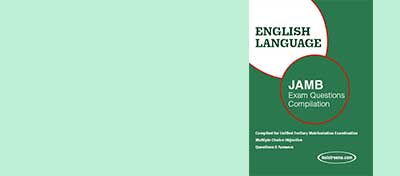Preparing for the Joint Admissions and Matriculations Board (JAMB) examination in Economics can be both challenging and rewarding. One of the most effective strategies for success is to utilize past questions and answers as part of your preparation. In this blog post, we’ll explore the importance of practicing JAMB Economics past questions and provide actionable tips to help you excel in your exam.
Understanding the JAMB Economics Syllabus
Understanding the JAMB Economics syllabus is essential for effective preparation and success in the examination. By familiarizing yourself with the structure of the syllabus, breaking down the topics, utilizing multiple resources, practicing past questions, and staying updated on current economic events, you can approach the exam with confidence and excel. Remember to create a study plan, stay organized, and stay consistent in your preparation efforts. With dedication and strategic study, you can master the JAMB Economics syllabus and achieve your desired score in the examination.
JAMB Economics Syllabus:
The JAMB Economics syllabus is designed to cover a wide array of topics aimed at assessing candidates’ understanding of economic principles and their applications. Here’s a breakdown of the key components typically included in the syllabus:
- Microeconomic Theory: This section delves into the fundamental concepts of microeconomics, exploring topics such as demand and supply, consumer behavior, production and costs, market structures (perfect competition, monopoly, oligopoly, and monopolistic competition), and resource allocation.
- Macroeconomic Theory: Macroeconomics focuses on the study of aggregate economic variables at the national and global levels. Key topics include national income accounting, inflation, unemployment, economic growth, fiscal policy, monetary policy, and international trade.
- Development Economics: Development Economics examines the economic challenges and strategies for promoting economic development in both developed and developing countries. It covers topics such as poverty, income distribution, population growth, globalization, sustainable development, and economic planning.
- Economic Systems: This section explores different economic systems, including capitalism, socialism, and mixed economies. It discusses the principles underlying each system, their strengths and weaknesses, and their implications for resource allocation and economic performance.
- International Economics: International Economics analyzes the economic interactions between countries, focusing on topics such as balance of payments, exchange rates, trade barriers, trade agreements, globalization, and international economic organizations.
Strategies for Effective Study of the JAMB Economics Syllabus:
- Review the Syllabus Thoroughly: Begin by carefully reviewing the JAMB Economics syllabus to understand the scope of topics covered and their relative importance. This will help you prioritize your study efforts and allocate time accordingly.
- Break Down the Topics: Divide the syllabus into manageable sections and create a study plan that allows you to cover each topic comprehensively. Allocate specific time slots for studying different sections, ensuring thorough coverage.
- Utilize Multiple Resources: Supplement your study of the JAMB Economics syllabus with textbooks, online resources, video lectures, and practice questions. Utilize a variety of resources to gain a deeper understanding of key concepts and reinforce your learning.
- Practice Past Questions: Practice solving past questions related to each section of the JAMB Economics syllabus to familiarize yourself with the exam format and assess your understanding of the topics. This will help build confidence and improve your performance on exam day.
- Stay Updated: Keep abreast of current economic events and developments to contextualize your understanding of economic theories and concepts. Understanding real-world applications of economic principles can enhance your comprehension and retention of the material.
Exam Format
The examination format for Economics under the Joint Admissions and Matriculation Board, similar to other subjects, is tailored to evaluate candidates’ comprehension and proficiency in line with the Nigerian secondary school syllabus. The Economics section of the JAMB examination typically encompasses the following components:
Multiple Choice Questions (MCQs): The Economics exam exclusively comprises multiple-choice questions. Each question offers four options (labeled A to D), requiring candidates to choose the most suitable response.
Total Questions: Candidates typically encounter 40 questions in the Economics section.
Time Allocation: The entire JAMB examination, covering four subjects including Economics, generally spans approximately 2 hours. Consequently, candidates must effectively manage their time across all subjects.
Study Tips and Approaches
Developing Effective Study Routines: Offer guidance on establishing a study timetable, setting achievable objectives, and employing active learning methods such as flashcards and mind mapping.
Comprehension versus Memorization: Emphasize the significance of comprehending concepts rather than relying solely on memorization. Encourage learners to utilize analogies and real-life instances to grasp challenging subjects.
Utilizing Practice Problems: Assist students in approaching practice questions, evaluating their errors, and refining their answering strategies.
Why Practice JAMB Economics Past Questions?
- Familiarity with Exam Pattern: JAMB Economics past questions offer insight into the exam’s structure, format, and types of questions typically asked. By practicing these questions, you’ll become familiar with the pattern, which can help reduce anxiety on the actual exam day.
- Identify Important Topics: Going through past questions helps you identify the most frequently tested topics in Economics. This allows you to prioritize your study time and focus on areas that are more likely to appear in the exam.
- Improve Time Management: Time management is crucial during the JAMB examination. Practicing past questions helps you gauge how long it takes to answer each question effectively, allowing you to develop strategies to optimize your time during the actual exam.
- Enhance Understanding: Repetition is key to learning. By repeatedly practicing past questions, you reinforce your understanding of key concepts and improve your retention of important information in Economics.
How to Effectively Use JAMB Economics Past Questions:
- Start Early: Begin practicing past questions well in advance of your exam date. This gives you ample time to cover all topics and identify areas where you need more focus.
- Organize Your Study Sessions: Divide your study sessions into manageable chunks and allocate specific time slots for practicing past questions. Mix topics to ensure a well-rounded understanding of Economics.
- Analyze Your Performance: After completing each set of past questions, review your answers and identify any areas of weakness. Pay attention to the types of questions you consistently struggle with and dedicate extra time to mastering those concepts.
- Simulate Exam Conditions: When practicing past questions, simulate exam conditions as closely as possible. Sit in a quiet environment, set a timer, and adhere to the allotted time for each section to mimic the actual exam experience.
- Seek Clarification: Don’t hesitate to seek clarification from teachers, tutors, or online resources if you encounter difficulty with certain questions or concepts. Understanding the rationale behind the correct answers is essential for effective learning.
Encouragement Note: Preparation is key. Start early, stay consistent, and seek help when needed. The journey to acing your exam is a marathon, not a sprint. With dedication and the right approach, you can achieve your desired score.




